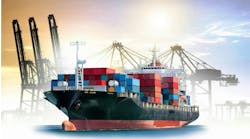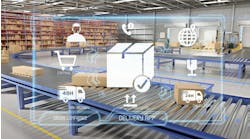Prospects for the repeal of some or all of the 2010 Dodd-Frank Act received a boost with the November election of Donald Trump as President and the return of Republican majorities to both houses of Congress.
Just how much relief that would afford electronics manufacturers—assuming such repeal were to include the lifting of disclosure requirements regarding sourcing of conflict minerals—is open to question, however. Impending European Union (EU) conflict minerals regulations, continuing pressure from the public and non-governmental organizations (NGOs), and the electronics industry’s own voluntary efforts to rid its supply chain of metals sourced from conflict-ridden areas could well keep the issue on the front burner.
For his part, the President-elect wasted little time following the election to underscore his desire to repeal the sweeping financial industry reform bill enacted in response to the 2008-09 recession. “The Financial Services Policy Implementation team will be working to dismantle the Dodd-Frank Act and replace it with new policies to encourage economic growth and job creation,” his transition website stated.
Trump will have a key ally in House Banking Committee Chairman Jeb Hensarling (R-Texas), sponsor of the Financial Choice Act, which would, among other things, wholly repeal the conflict minerals provisions of Dodd-Frank. Since the election, Hensarling has reaffirmed that the bill—passed by the committee in September 2016 but never a likelihood to become law in an election year—is likely to form the basis for new repeal legislation he expects to introduce in 2017.
“It would not be appropriate for us to speculate on what the new administration may or may not do regarding specific legislation,” says Leah Butler, program director at the Conflict-Free Sourcing Initiative (CFSI), a broad-based association of manufacturers from the electronics and other industries that provides resources to help companies source conflict-free minerals. Noting that the organization predates the Dodd-Frank Act (DFA), she added that CFSI “will continue its mission to facilitate responsible sourcing regardless of what happens to DFA.”
Among the compliance tools CFSI provides electronics companies and other manufacturers is a program to help them assess the conflict status of the smelters and refiners that produce the tantalum, tin, tungsten, and gold that are incorporated into their products. To be included on CFSI’s list of conflict-free smelters, a facility must undergo an independent, third-party audit process. Butler says the process is now being updated to include a broader definition of conflict-affected and high-risk areas that will include, “but will not be limited to,” the 10 countries named in the Dodd-Frank Act. Those new requirements will take effect in mid-2017, she says.
Identifying those smelters that are conflict-free could help streamline the process for compliance with the spirit, if not the letter, of Dodd-Frank.
“What I hear from our member companies is that it’s been difficult to comply with Dodd-Frank with respect to conflict minerals because the supply chain is very convoluted,” says Robin Gray, chief operating officer and general counsel at the Electronic Components Industry Association (ECIA). “There are really very few accurate ways to determine where the ore comes from. And there are lots of ways to circumvent that provision without going to costly, extreme measures to ensure some sort of compliance.”
New EU Regulations
Moreover, CFSI’s broadening of its definition of conflict-affected areas beyond the Democratic Congo and the nine countries that adjoin it could also help sync its voluntary compliance program with conflict minerals regulations forthcoming from the EU.
On November 22, the European Council and European Parliament reached an “informal deal” on binding regulations aimed at stopping the financing of armed groups through trade in conflict minerals. The agreement—which has yet to be ratified—pertains to EU imports of the same four minerals identified in Dodd-Frank but extends the coverage to all countries in the world. Formalization of the accord—in the form of a final vote by the European Parliament—is expected in 2017, with provisions to take effect in 2021.
“That”s one of the reasons we can’t really put the cat back in the bag—other countries have started along this road as well,” says Mike Kirschner, president of Design Chain Associates, which consults with manufacturers on improving their products’ environmental performance. “The European Union is on its way to implementing a conflict materials regulation. China has a voluntary approach, but people expect that to become mandatory at some point as well.”
Kirschner adds that there are vocal factions—among social-justice NGOs, retailers, consumers, and investors—that have a strong interest in seeing manufacturers deal with the conflict mineral issue rigorously. Those parties are not likely to take the pressure off electronics manufacturers in the event of the repeal of the Dodd-Frank law, he says.
“A lot of organizations, companies, and executives truly want to be part of the solution to stem the violence [in the conflict-ridden areas],” says Pamela Gordon, senior consultant at Antea Group, an international engineering and environmental consulting firm. “But many people in the electronics industry honestly weren’t aware of it until the conflict minerals rule.”
In addition to exercising control over decisions on where and from whom they source minerals, companies also have a degree of choice over which materials their products are manufactured from to begin with, Gordon notes. Some companies are now looking at specifying recycled minerals, which would avoid the issue of potentially benefiting armed groups that are financed by conflict smelters, she says.
With EU conflict minerals regulations on the horizon, ECIA’s Gray says that companies’ compliance activities could become more arduous than ever—particularly if Dodd-Frank’s conflict minerals provisions stay intact.
“It’s a global economy and electronic components move all around the world and go into a variety of different industries and products,” he notes. “If you have any sort of scale at all, your products are likely to be subject to European regulation and U.S. regulation—and anyone else, too. If you have to comply with multiple government regulations, it can be a real challenge.”









